Welcome!
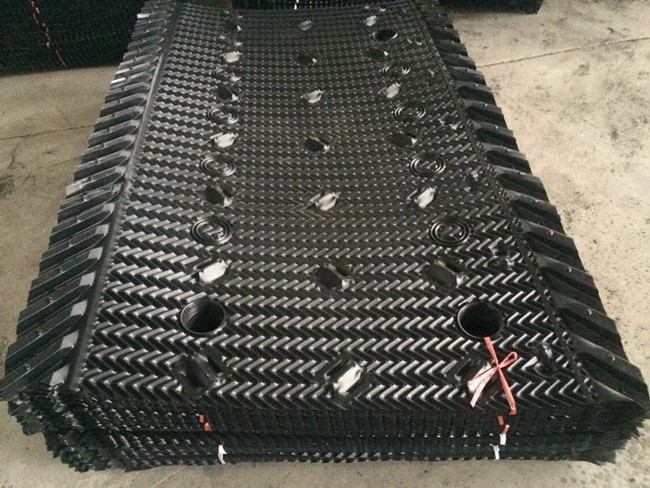



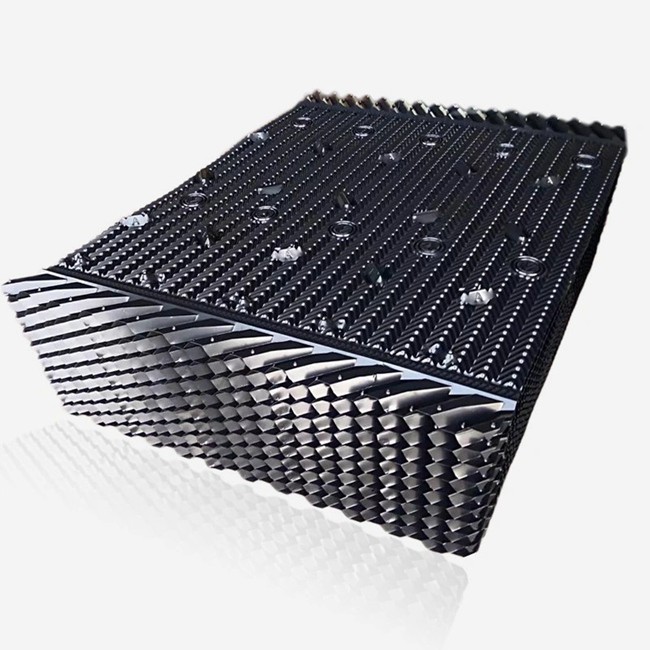
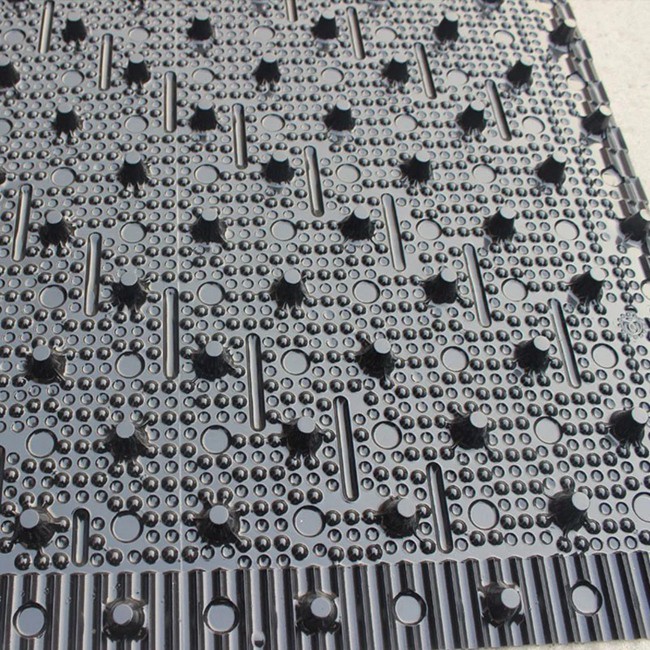
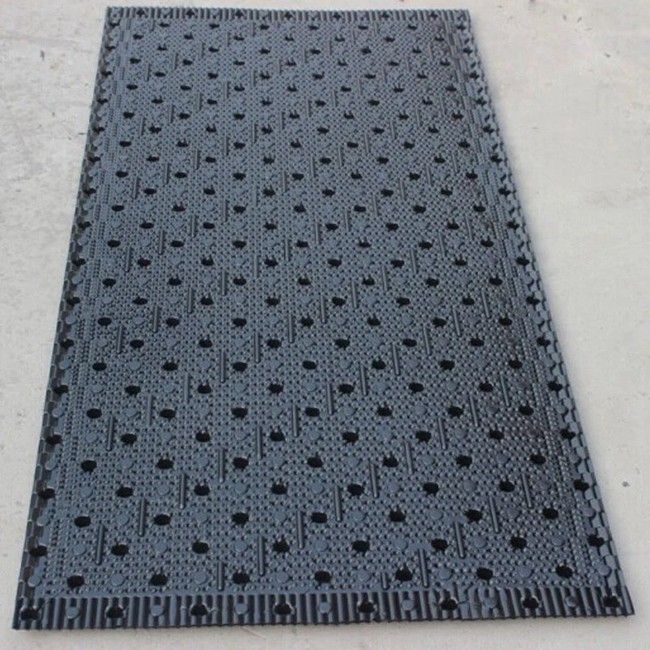
Factory Directly PVC Cooling Tower Filler for Cooling Tower
Product Description
PVC material has a relatively small impact on the environment during production and use, which meets the requirements of modern industry for sustainable development. In addition, PVC fillers do not release toxic substances at high temperatures, which is beneficial for people's lives and health. And compared to some high-performance filler materials such as FRP (glass fiber reinforced plastic), the cost of PVC filler is relatively low. This makes PVC fillers an ideal choice in economically demanding situations. Its high cost-effectiveness can meet general heat dissipation needs while also controlling costs.

PVC material has good chemical stability and can resist the erosion of various chemicals. During the operation of cooling towers, it is often necessary to handle various chemicals and high-temperature fluids, so the corrosion resistance and high-temperature resistance of the packing are crucial. PVC filler can operate stably for a long time in such an environment, ensuring the performance and lifespan of the cooling tower.

With the continuous progress of science and technology and the continuous development of industrial technology, the application scope of PVC fillers will continue to expand. In the future, PVC fillers are expected to leverage their unique advantages in more fields, providing efficient and reliable solutions for the heat dissipation, filtration, and purification needs of various industries. Meanwhile, with the increasing awareness of environmental protection and the deepening of sustainable development concepts, the environmental friendliness of PVC fillers will also become one of the important directions for their future development.
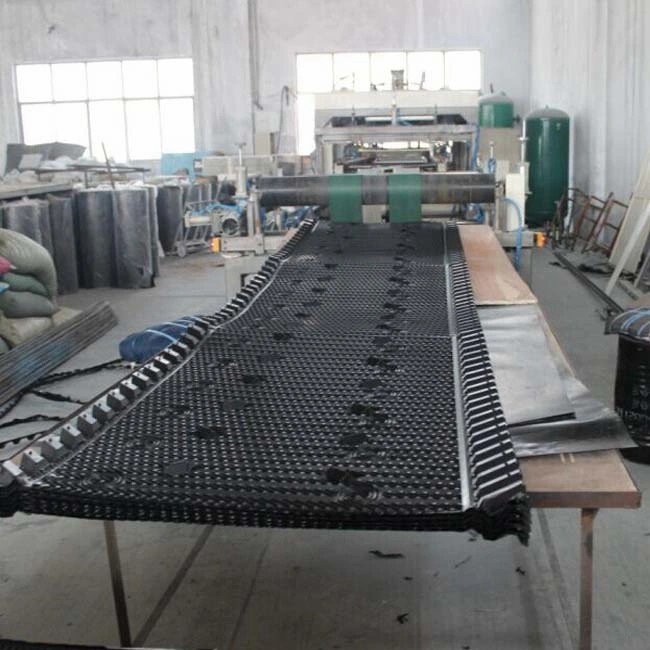
The manufacturing process of PVC filler mainly includes two steps: extrusion and molding. During the extrusion process, PVC particles are heated and extruded through a mold to form the desired filler shape. During the molding process, PVC particles are placed in molds with the desired shape and processed through heating and pressure to ultimately produce finished products. The precise control of these two steps ensures that the quality and performance of PVC fillers reach their optimal state.
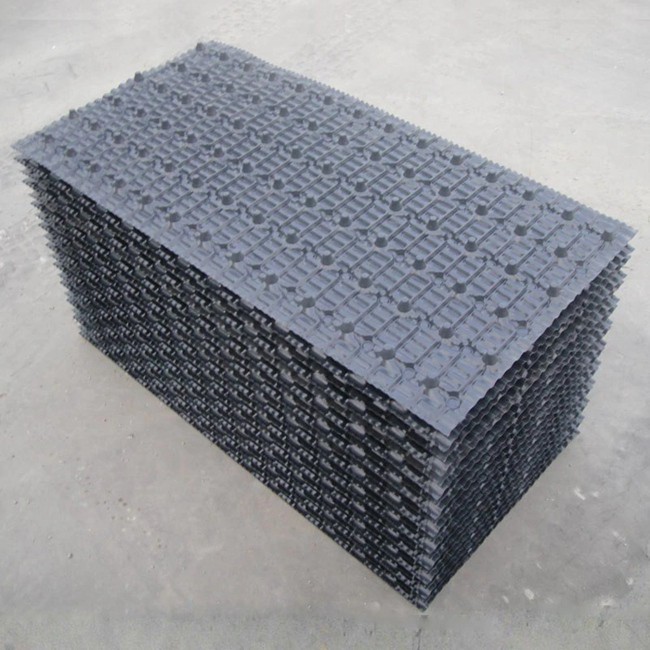
In addition to the aforementioned fields, PVC fillers are also widely used in various industries such as construction, packaging, and automotive manufacturing. For example, in the field of construction, PVC fillers can be used as waterproof materials and soundproofing boards; In the packaging industry, it can be used as a film and sealing material; In the field of automobile manufacturing, PVC fillers can be used to make components such as interior decorative strips and cable sheaths.

Recommended Products
Recently Viewed
 Best Price Low Noise Bottle Type Round Mini FRP Open Water Cooling Tower
Best Price Low Noise Bottle Type Round Mini FRP Open Water Cooling Tower China Supplier Mini Closed Water Cooling Tower Price
China Supplier Mini Closed Water Cooling Tower Price Best Price Low Noise Bottle Type Round Mini FRP Open Water Cooling Tower
Best Price Low Noise Bottle Type Round Mini FRP Open Water Cooling Tower Best Price Mini Closed Water Cooling Tower Price
Best Price Mini Closed Water Cooling Tower Price Hot Sale Low Noise Bottle Type Round Mini FRP Open Water Cooling Tower
Hot Sale Low Noise Bottle Type Round Mini FRP Open Water Cooling Tower
Contact Us
WEIFANG HENG AN IMP & EXP CO., LTD.



